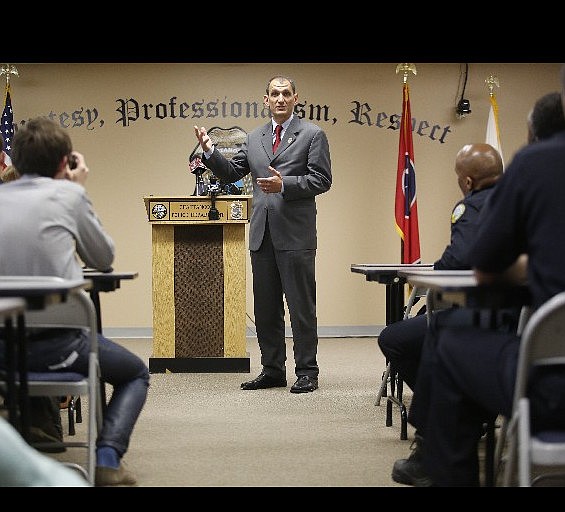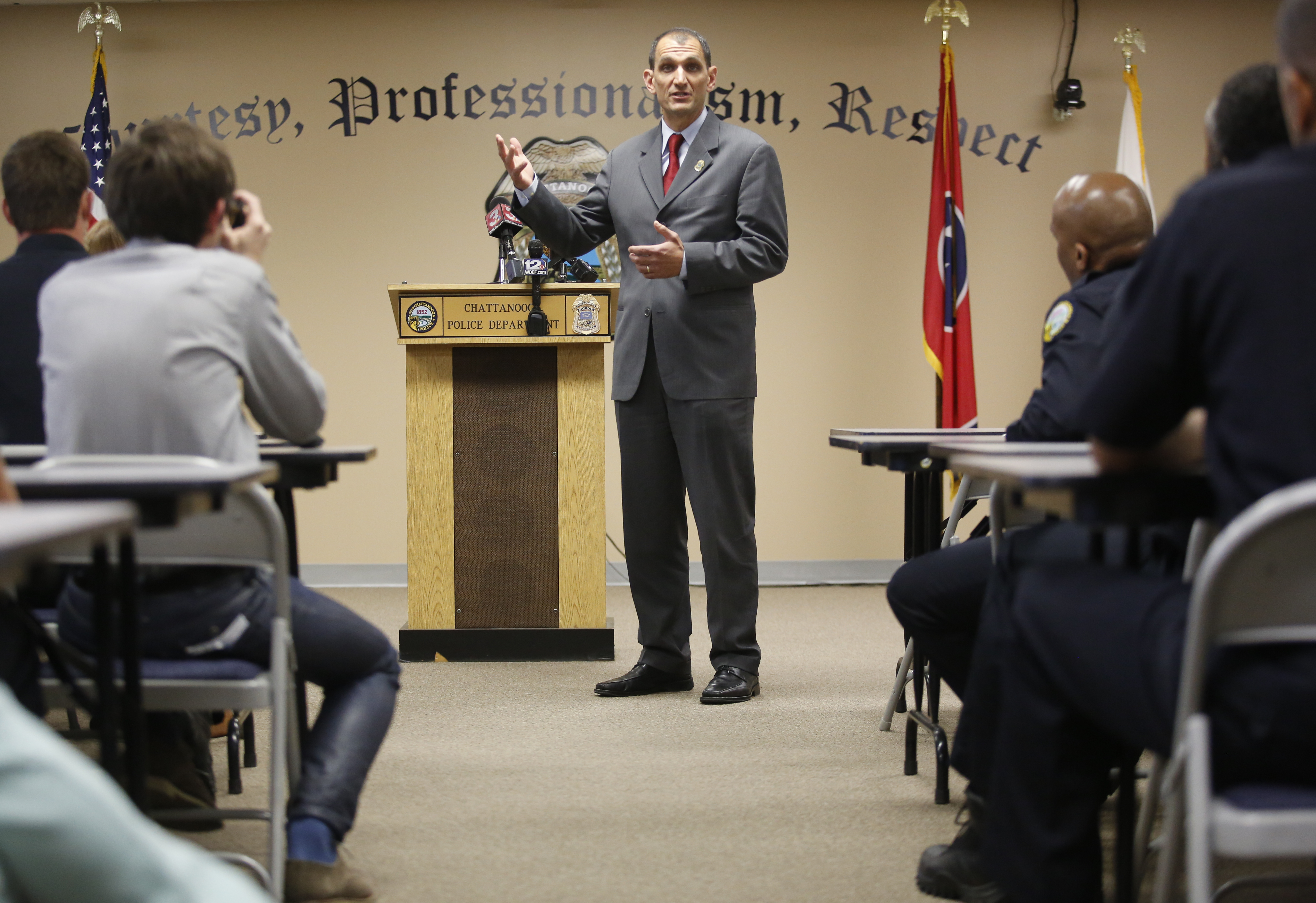Two days after flying to Chattanooga to accept the position of police chief, Fred Fletcher lined up with hundreds of other runners in Saturday's Scenic City Trail Marathon.
Fletcher -- a commander in the Austin (Texas) Police Department and avid runner and cyclist -- knows that gaining the public's trust starts with being available and demonstrating the simple message that you care about your community.
"I consider that a part of the obligation of a leader," Fletcher said. "I will be an active and visible member of the community, not just as a police officer but as a resident."
In Austin, those who worked with Fletcher said what makes the 20-year veteran effective is his ability to inspire others to lead and to disarm the community by seeking their help to address the city's worst crime.
He went door to door to explain a new policing style and solicited advice from community leaders as well as rookie cops. He taught civil rights and safety classes to immigrant Iraqis, Cubans and Asians, making sure he learned at least one word in their native languages to make them feel more comfortable. Programs he pioneered were adopted across Austin; some even went statewide.
Such glimpses of his style, commitment and success demonstrate the type of leader he'll be in Chattanooga, those who know him say.
"You're going to see a lot of Fred Fletcher out in the community; that's what he did in Austin," said Austin NAACP President Nelson Linder. "He's going to make sure officers are very visible, and he'll demand they have relationships. You're going to see that right away."
Yet Fletcher's position isn't sealed in Chattanooga until the City Council votes. Each council member plans to meet with him one on one before making a decision. Those who have had a chance to talk with him say they are impressed.
When Fletcher wanted the east Austin community to know he and prosecutors were introducing a new style of policing to snuff out an open-air drug market in one of the city's worst areas, he knocked on neighbors' doors, Linder said. He told them that he didn't want to put more of their family members in jail, but wanted to find them jobs and help change their lives, Linder said.
Community members were skeptical; they had been fed similar pitches for decades. But when the daytime drug deals waned along with the prostitution and crime, some people were impressed, Linder said. They began to trust the police again.
From 2012 to 2013, violent crime in the region that Fletcher oversaw decreased by 14 percent, and property crime declined by 9 percent. And officials said Austin police plan to expand the drug market intervention program that Fletcher helped pilot to other pockets of crime in the city.
Fletcher's 20-year career in Austin spans a lengthy list of accomplishments including:
• A traffic project that increased ticket citations by 31 percent and lowered traffic fatalities.
• Trust rebuilt in diverse communities through a series of community town hall meetings, commander forums and neighborhood walks.
• The initiation of more than a dozen community programs ranging from the drug market intervention to smaller-scale projects like Street Law Course, a class to help kids understand how to navigate encounters with law enforcement.
Leaders who worked with Fletcher said he had the ability to reach the community like few other police officers.
One community program Fletcher initiated taught refugees and immigrants their civil rights as well as safety tips, said Angela-Jo Touza-Medina, a program manager for nonprofit social service agency Caritas of Austin.
Touza-Medina met Fletcher in 2005 and said he immediately became interested in learning about refugees from across the world. In each class Fletcher taught, Touza-Medina said, he would learn at least one word in the class's original language.
"Fred was very eager to learn about the different populations we serve," she said.
What started as one program expanded to a training tool across the city to teach political refugees and hundreds of immigrants about public safety.
Those who worked for Fletcher said he's not the kind of leader who will be stuck behind a desk.
He's humble, said Lt. Michael Eveleth. When he wants to find solutions, he goes to the experts on the subject.
He went to Officer Rheannon Cunningham, an expert on the cycling community, for advice when motorists weren't giving bicycles the required three-foot clearance and Austin experienced a spike in traffic fatalities, including cyclist deaths.
Cunningham had just recently graduated from the police academy when she found herself one of the leaders of an undercover sting to crack down on drivers. Officers in civilian clothes would ride their bikes and radio to a parked patrol car when they saw drivers too close to cyclists.
What had been an unenforceable law became effective, and the program was so successful, Fletcher said, that the city adopted it, as did others across the state.
"It was a dream of mine, to combine my hobby and passion with my job," Cunningham said. "I've loved working under [Fletcher's] supervision. [He] makes it feel like your opinion and your work actually matter."
Chattanooga officials said their impression of Fletcher so far is that he will use his passion and energy to find leaders within the police department and to build trust with the community.
"Our biggest desire is for a leader that the men and women of this department can follow, engage in, trust and respect," said Sean O'Brien, president of the local chapter of the Fraternal Order of Police. "It's [currently] not anywhere near what it needs to be."
Fletcher said most major changes in a community start small, and a good leader recognizes those ideas and enables people.
"Little successes beget big successes," he said. Take the biking initiative, he said.
"It started with a simple, humble working plan. All I did was ask [Cunningham] to do it, then support her and get out of the way."
Contact staff writer Joy Lukachick at jlukachick@timesfreepress.com or 423-757-6659.

